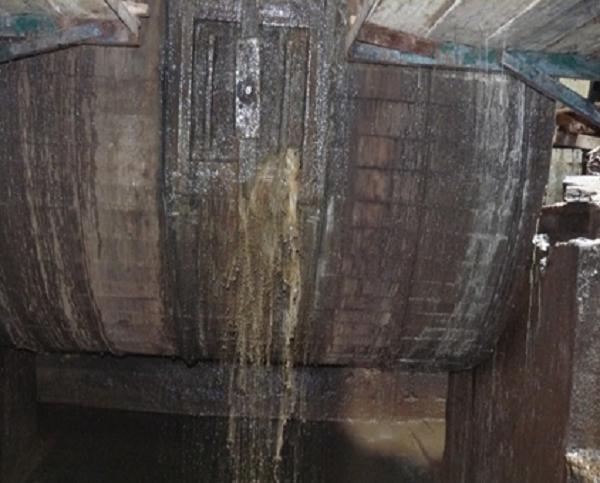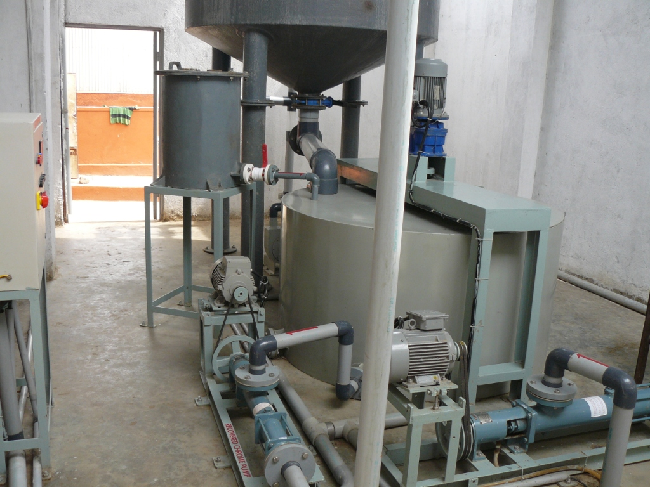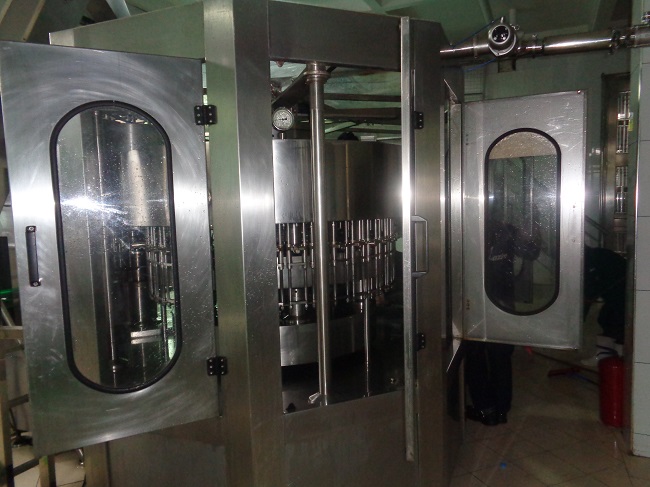Resource Efficient and Cleaner Production (RECP)
RECP involves a systematic and integrated approach to managing energy, water, environmental and financial resources, eliminating or minimizing waste and emissions to the environment, on a sustainable and cost-effective basis. RECP methodologies look at enhancing the means to meet human needs while respecting the ecological carrying capacity of the earth by producing more wellbeing with less material consumption.
RECP is measured by the reduction of the resource use and the environmental impact from materials, emissions, and accidental releases per unit of production, trade, and consumption of goods and services over their full life cycles. Under the RECP programme area, UCPC has implemented a number of projects including;
- Engaging Private Sector in Green Growth (EPSGG) in LVB
- LVEMP II- Promoting Clean Technologies and Practices in Lake Victoria Basin (LVB)
Engaging Private Sector for Green Growth in Lake Victoria Basin (EPSGG-LVB )
The East African National Cleaner Production Centre’s of Burundi, Kenya, Rwanda, Tanzania and Uganda in partnership with Lake Victoria Basin Commission (LVBC) with support from World Bank and the Nordic Development Fund (NDF) implemented the project on Engaging Private Sector for Green Growth in Lake Victoria Basin (EPSGG-LVB).
The Development Objective of the project was to increase use of and investment in Resource-Efficient and Cleaner Production (RECP) technologies by private enterprises in the Lake Victoria Basin. Achievement of this objective was measured by three indicators i.e;
- Percent of total private enterprises in LVB with roughly similar size categories that are using one or more RECP technologies because of project investment;
- Total amount of investment by private enterprises in the LVB in RECP technologies at the end of the project both directly (enterprises targeted by the project and indirectly by similar sized enterprises not directly benefiting from project investment); and
- Total amount of greenhouse gas emissions avoided on a calculated annual basis due to project interventions.
The project comprised of three (3) components, namely:
- Scaling-up the RECP activities aimed at expanding both scope of services provided through project engagement with the private sector and an expansion of the number of enterprises supported through the project RECP;
- Strengthening the Facilitating Environment and sustainability for “post-project” RECP expansion by strengthening incentives for companies to adopt RECP technologies; and
- Piloting Green Growth instruments by engaging private sector support for more sustainable agricultural supply chains, of enterprises particularly important in the LVB such as important agricultural and commercial commodities like sugar, tea, coffee, fish, dairy, mango, honey, leather and paper processing, etc. that are important drivers of rural development but which also have off-site impacts on Lake Victoria and therefore offer opportunities for investment that produce win-win scenarios for both the enterprises and the Lake.
Lake Victoria Environmental Management Program (LVEMP II)
The second phase of the Lake Victoria Environmental Management Project (LVEMP II) was a regional project covering the East African Country (EAC) partner states. The higher development objective of LVEMP II was to contribute to the EAC’s Vision and Strategy Framework for Management and Development of the Lake Victoria Basin (LVB) – “a prosperous population living in a healthy and sustainably managed environment providing equitable opportunities and benefits”.
Within this project, Sub-component 2.2 that was dealing with promoting Cleaner Production technologies was implemented by National Cleaner Production Centres of Kenya, Tanzania and Uganda and coordinated by the Kenya National Cleaner Production Centre (KNCPC). The sub-component was designed to address the industrial pollution challenges and unsustainable resource consumption patterns within the Lake Victoria Basin. The project aimed at increasing competitiveness of the Lake Basin enterprises by promoting waste reduction and negative impacts as well as optimizing material, water and energy utilization through the application of Cleaner Production technologies and techniques.
UCPC carried out awareness and training in Cleaner Production technologies in enterprises with in LVB operating in Kampala, Mukono, Wakiso, Jinja, Masaka, and Mbarara Districts. Industries that were selected to participate in the project were grouped into 28 sectors out of which 12 priority sectors/clusters were selected for RECP interventions namely, Sugar, Tea, Fish, Brewery, Soft drinks, Dairy, Food processing (bakery, milling, juices &edible oil), Textile, Pulp and Paper, Petroleum and leather (tanneries) and Hotels. Five sector specific RECP reference manuals were developed to support implementation of the project.
In order to address pollution loading, baseline data on industrial pollution loading into the Lake Victoria from the Lake Basin industries was established. The key pollution parameters established were Biological Oxygen Demand (BOD), Chemical Oxygen Demand (COD), Total Nitrates (TN) and Total Phosphates (TP).
UCPC completed in-depth RECP assessments in enterprises. From the in-depth RECP assessments, improvement measures were identified under different categories. Out of the measures identified, good housekeeping had 58%, technology change 6%, reuse/recycle 2%, equipment modification 27%, and input substitution 7%.
Due to implementation of the Cleaner Production (CP) measures identified, significant reductions in pollution loading from enterprises in sectors such as Sugar, Dairy, Leather, Beverages, Chemicals e.t.c were achieved. BOD load reduced from an average of 3.10 x107 to 7.24x105 Kg/year, COD load reduced an average of 4.61x107to 1.24 x106 Kg/year representing percentage reduction in BOD and COD loading of 78.40 and 72.98 respectively.









